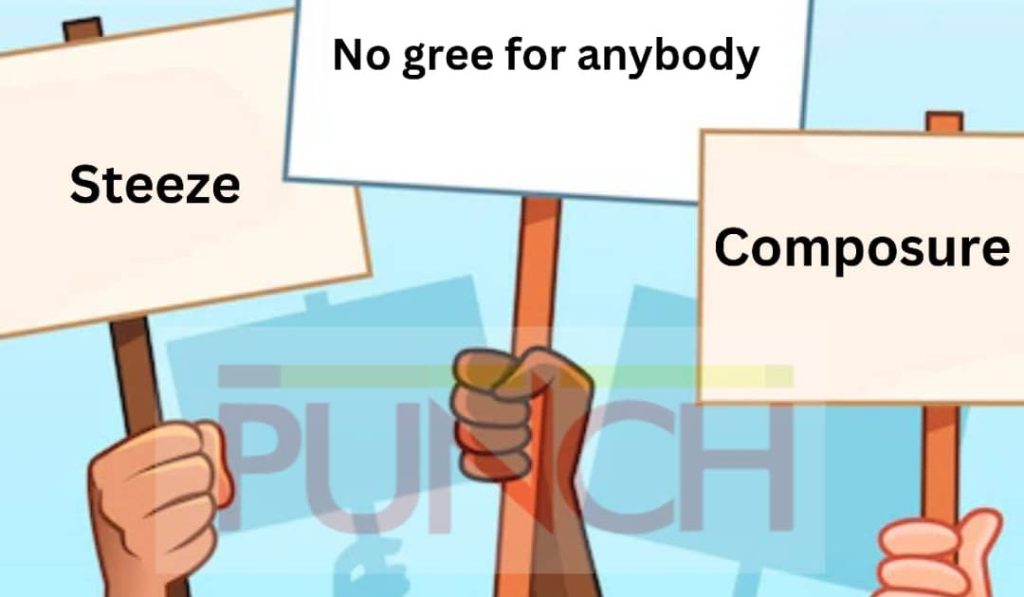Nigerian slang in 2024 served as a vibrant tapestry of language, reflecting the country’s dynamic culture and offering a unique lens into the everyday experiences of its people. These colloquialisms, far from being mere linguistic curiosities, became powerful tools for communication, adding color and nuance to conversations, music, and artistic expression. From expressions of disbelief to affirmations of agreement, the slang of 2024 captured the spectrum of human emotion and interaction, providing Nigerians with a shared lexicon to navigate the social landscape. The rapid adoption and widespread use of these phrases demonstrate the fluidity and adaptability of language, constantly evolving to mirror the zeitgeist.
The slang of 2024 encapsulates a range of social commentaries, observations, and humorous takes on life. “No gree for anybody” embodies a spirit of resilience and defiance, urging individuals to stand their ground. “Kwechiri,” borrowed from the Igbo language, injects a sense of theatrical surprise into everyday discourse. “Dey play” serves as a gentle nudge towards reality, while “No evidence” emphasizes the importance of substantiating claims. The phrase “E don cast” succinctly captures the feeling of things going awry, while “No panic” offers a reassuring call for calm amidst chaos. “Steeze,” inspired by the Ojude Oba festival, elevates the appreciation of style and elegance. These expressions, taken together, paint a vivid picture of the Nigerian social experience, highlighting values of perseverance, humor, and a healthy dose of skepticism.
Beyond their literal meanings, these slang terms also function as social cues, signaling belonging and shared understanding within a particular group. “Composure,” similar to “No panic,” emphasizes emotional control. “Gyat” provides an outlet for enthusiastic expression, akin to “Wow!” while “Bet” serves as a casual affirmation. “Rizz” delves into the realm of personal charisma and attractiveness, while “Side-eye” captures the subtle art of non-verbal disapproval. The demand for “Receipts” underscores a need for accountability and transparency, while “Hot take” encourages the expression of bold opinions, even if controversial. These terms facilitate social interaction, providing shorthand for complex emotions and interpersonal dynamics.
The slang of 2024 also reflects the influence of digital culture and online trends. “Bandwagon” calls out the tendency to follow popular trends uncritically, while “Go warm eba” humorously dismisses unwanted interference. “Touch grass” serves as a playful jab at those perceived as out of touch with reality. “Lewks” and “Drip” celebrate individual style and fashion, highlighting the importance of self-expression through clothing. “Ick” captures the feeling of visceral aversion or discomfort. These terms demonstrate how online interactions and social media trends shape language, influencing the way people communicate both online and offline.
The rapid spread and adoption of these slang terms can be attributed to several factors. The widespread use of social media platforms facilitates the rapid dissemination of new phrases and creates a sense of shared linguistic currency. The influence of popular music and entertainment also plays a significant role, with artists often incorporating slang into their lyrics and performances, further amplifying its reach. Moreover, these terms often tap into shared experiences and cultural nuances, resonating with a wide audience and solidifying their place in the lexicon.
In conclusion, the Nigerian slang of 2024 offers a fascinating glimpse into the linguistic landscape of a vibrant and evolving culture. These terms, far from being mere ephemeral trends, provide valuable insights into the social dynamics, values, and humor of Nigerian society. They represent a dynamic form of linguistic expression, constantly adapting to reflect the ever-changing social and cultural landscape. From expressions of resilience and skepticism to celebrations of style and individuality, the slang of 2024 serves as a powerful testament to the creativity and dynamism of the Nigerian people and their language.


